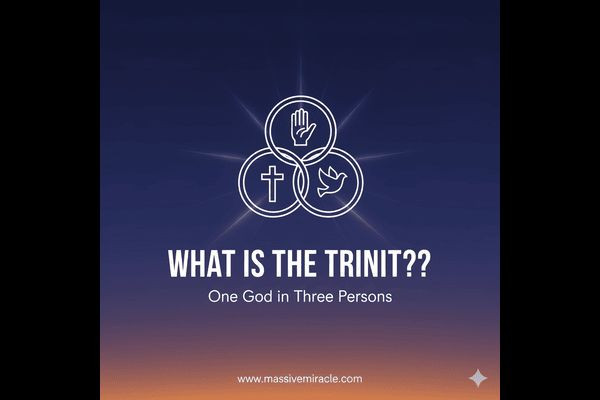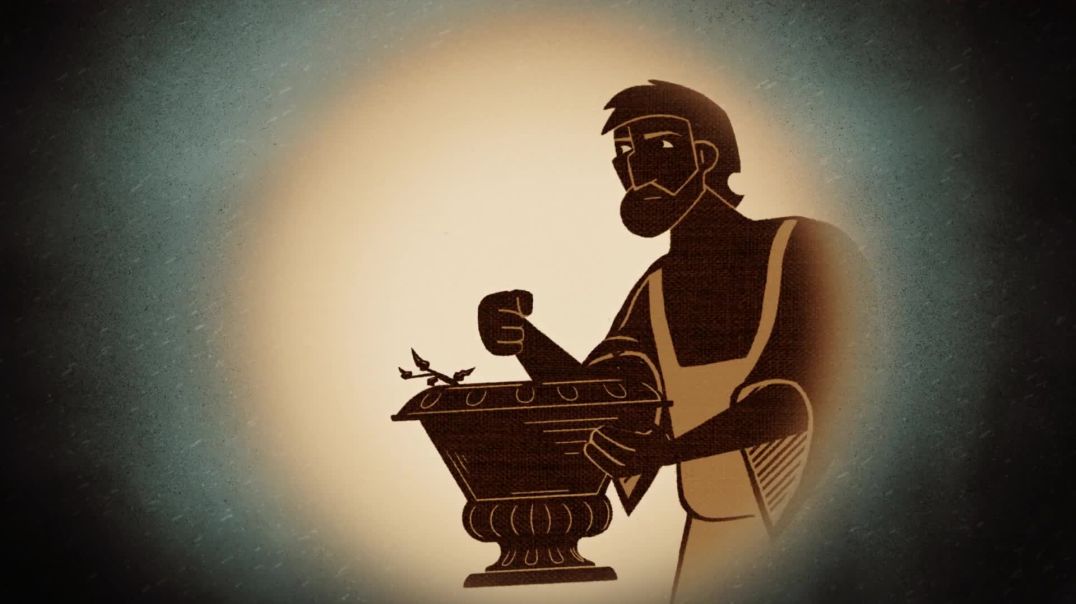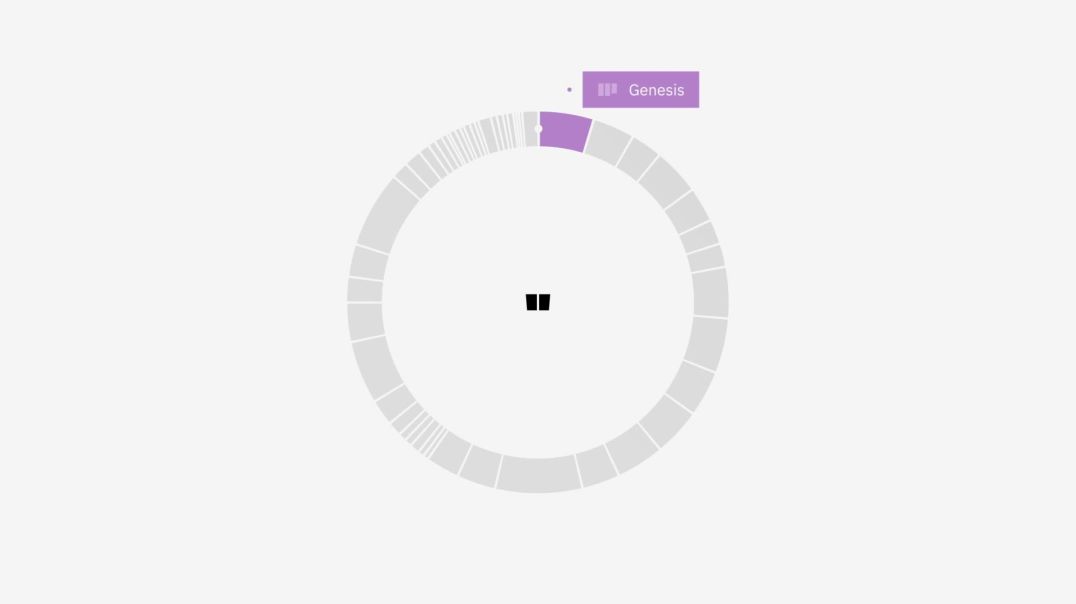Here is a detailed article on the doctrine of the Trinity from a biblical worldview.
What is the Trinity? Understanding the Triune God
Of all the doctrines in the Christian faith, none is more central, more mysterious, or more foundational than the doctrine of the Trinity. It is the very bedrock of how Christians understand God, the universe, and salvation itself. To be a Christian is to be baptized "in the name of the Father and of the Son and of the Holy Spirit" (Matthew 28:19).1 But what does this mean?
In short, the doctrine of the Trinity states that there is one God who eternally exists in three distinct Persons: the Father, the Son, and the Holy Spirit.2 Each Person is fully God, and yet there are not three gods, but one.
This is not a contradiction, but a mystery—a truth revealed by God that is beyond our finite human ability to fully comprehend. The word "Trinity" itself does not appear in the Bible. It is a theological term, first used by the church father Tertullian in the 2nd century, to summarize and faithfully describe the abundant testimony of the Scriptures.3
The Bible does not present the Trinity in a single verse or chapter. Rather, it reveals this truth progressively from Genesis to Revelation. To understand it, we must hold three distinct, non-negotiable biblical teachings in perfect balance.
1. There is Only One God
The starting point for the biblical worldview is radical monotheism. This set the Hebrew people, and later the Christian church, apart from the polytheistic world around them. God is not one among many; He is the only One.4
This is the "Shema," the central creed of Israel, found in Deuteronomy 6:4: "Hear, O Israel: The LORD our God, the LORD is one."5
This truth is echoed relentlessly throughout the Old Testament.6 God Himself speaks through the prophet Isaiah:
-
"Before me no god was formed, nor shall there be any after me." (Isaiah 43:10)7
-
"I am the LORD, and there is no other, besides me there is no God."8 (Isaiah 45:5)
-
"I am the first and I am the last; besides me there is no God."9 (Isaiah 44:6)
The New Testament carries this fundamental truth forward without change. James writes, "You believe that God is one; you do well. Even the demons believe—and shudder!" (James 2:19).10 Paul affirms, "there is no God but one" (1 Corinthians 8:4).11
Any understanding of God that violates this core principle of monotheism is unbiblical. This is why Christians are not tritheists (believers in three gods).
2. God Exists as Three Distinct Persons
This is where the revelation becomes more complex. The same Bible that insists on God's oneness also speaks of three distinct Persons who are identified as God.12
The Father is God
This is the most easily understood aspect. The entire Bible refers to God as Father. He is the Father of Israel (Deuteronomy 32:6), the Father of lights (James 1:17), and the "God and Father of our Lord Jesus Christ" (Ephesians 1:3).13 Jesus prays to Him as "Father" (John 17) and teaches His disciples to do the same (Matthew 6:9).14
The Son, Jesus Christ, is God
This is the central claim of the New Testament. Jesus is not merely a prophet, a good teacher, or a created being.15 He is God the Son, the eternal Word made flesh.16
-
His Divine Claims: Jesus claimed attributes only God possesses.17 He forgave sins (Mark 2:5-7), which the scribes correctly identified as something "God alone" could do.18 He declared, "I and the Father are one" (John 10:30).19 Most shockingly, He said, "Before Abraham was, I am" (John 8:58), taking upon Himself the covenant name of God ("I AM") from Exodus 3:14.20
-
The Apostles' Testimony: The apostles were unwavering in their declaration of Christ's deity.21
-
John 1:1, 14: "In the beginning was the Word, and the Word was with God, and the Word was God... And the Word became flesh and dwelt among us."
-
Colossians 2:9: "For in him [Christ] the whole fullness of deity dwells bodily."22
-
Titus 2:13: We wait for "...our great God and Savior, Jesus Christ."23
-
Hebrews 1:8: The Father says of the Son, "Your throne, O God, is forever and ever."
-
John 20:28: When the doubting disciple Thomas finally sees the resurrected Jesus, he cries out, "My Lord and my God!" Jesus accepts this worship.24
-
The Holy Spirit is God
The Holy Spirit is not an impersonal force or an "it." The Bible describes the Spirit as a "He"—a Person with a mind, will, and emotions.25
-
He is a Person: The Spirit teaches (John 14:26), testifies (John 15:26), intercedes (Romans 8:26), and can be grieved (Ephesians 4:30).26
-
He is God: In Acts 5:3-4, the apostle Peter confronts Ananias.27 "Ananias," he says, "why has Satan filled your heart to lie to the Holy Spirit...28 You have not lied to men but to God." In this one passage, lying to the Holy Spirit is explicitly called lying to God.
-
He has Divine Attributes: The Spirit is eternal (Hebrews 9:14), omniscient (1 Corinthians 2:10-11), and omnipresent (Psalm 139:7-10).29 He was active in creation: "the Spirit of God was hovering over the face of the waters" (Genesis 1:2).30
3. The Persons are Distinct and Co-equal
This is the final piece of the puzzle. The Bible shows that the Father, Son, and Holy Spirit are not just three different "modes" or "masks" that one God wears (a heresy called Modalism).31 They are truly distinct Persons who have related to one another for all eternity.32
We see their distinction most clearly at the baptism of Jesus (Matthew 3:16-17):
-
The Son is in the water, being baptized.
-
The Father speaks from heaven: "This is my beloved Son, with whom I am well pleased."33
-
The Holy Spirit descends upon the Son "like a dove."34
All three Persons are present and active, yet they are clearly not the same Person.
Likewise, in His final discourse, Jesus speaks of this relationship: "But when the Helper [the Holy Spirit] comes, whom I [the Son] will send to you from the Father, the Spirit of truth, who proceeds from the Father, he will bear witness about me" (John 15:26). The Son sends the Spirit from the Father. They are distinct.
This tri-unity is powerfully summarized in the "Great Commission" (Matthew 28:19). Jesus commands the disciples to baptize "in the name [singular] of the Father and of the Son and of the Holy Spirit [plural]." One name, three Persons.35 They are equal in essence, glory, and honor.36
Conclusion: A Mystery to be Worshipped
The Trinity is not a problem to be solved but a reality to be worshipped. We cannot fully understand how God can be both one and three—it is beyond the capacity of the created mind. Human analogies (like water, ice, and steam; or an egg's shell, white, and yolk) all fail and inevitably lead to heretical ideas.37
What the Bible reveals is a God who is, in His very nature, relational. Before He ever created the world, God was not alone. The Father loved the Son (John 17:24) in the fellowship of the Holy Spirit.38 Love, fellowship, and community are not things God created; they are part of His eternal essence.39
This is the God who saves us. The Father so loved the world that He sent the Son (John 3:16). The Son accomplished our salvation by His death and resurrection.40 The Holy Spirit applies that salvation to us, regenerating our hearts and sealing us for eternity (Ephesians 1:13-14).41
We are saved by the triune God, and we are brought into fellowship with the triune God.42 As we stand before this profound and beautiful mystery, our only proper response is that of the angels in heaven: "Holy, holy, holy is the Lord God Almighty, who was and is and is to come!" (Revelation 4:8).43








